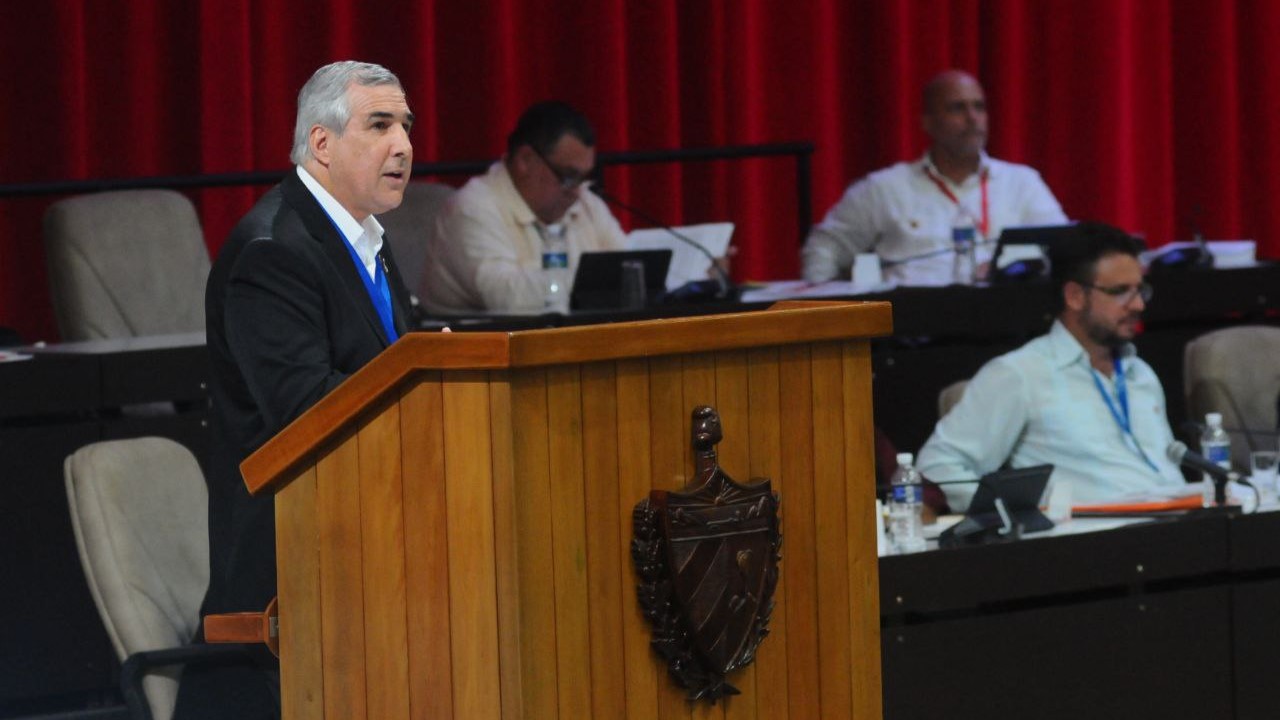On last Thursday the National Assembly of Popular Power approved the Public Transparency and Information Access Law, which, according to independent analysts "does not comply with the most minimum international and regional standards" and evidences how the regime "rejects any influence or proposal aimed at the promotion of and respect for human rights."
According to the government portal Cubadebate, the law facilitates, for the first time, compliance by State bodies with their obligations and by other subjects responsible for providing public information, and supports the guarantees for citizens set down in the Constitution.
When presenting the bill to the representatives gathered at the Convention Palace, the Minister of Science, Technology and Environment (CITMA), Eduardo Martínez Díaz, quoted General Raúl Castro back in 2010: "it is necessary to place on the table all the information and arguments on which each decision is based and, incidentally, to avoid the excessive secrecy to which we have become accustomed after more than 50 years of being besieged by the enemy."
Since 2010, the paucity of information disclosed has not changed much, and official data continues to be characterized by its opacity.
"A State will always have to observe a logical secrecy in some matters, this being something that no one questions, but not regarding the issues that define the political and economic course of the nation. It is vital to explain, justify and convince the people of the fairness, necessity and urgency of a measure, no matter how harsh it may seem," said Martínez Díaz, quoting Castro.
Martínez Díaz said that these ideas inspired the drafting process of the bill, conducted by CITMA, closely followed by Miguel Díaz-Canel and which, according to the minister, involved a broad specialized consultation mechanism and participation by institutions and experts from all over the country. She added that 307 opinions were collected on the bill, with 196 of them being fully or partially accepted.
Former Cuban judge Edel González Jiménez, a lawyer for DIARIO DE CUBA, recently warned that dissidents, activists and independent journalists may be denied access to information, something tacitly provided for in the bill.
"Article 4, paragraph j), which refers to the principles upon which the law is based, intentionally omits discrimination for reasons of thought, conscience, ideology and/or politics, one of the most pernicious discrimination practices in Cuba," said Gonzalez Jimenez.
According to Gonzalez, the law "has a serious problem in that it does not provide for the creation of an autonomous body to guarantee and supervise access to public information."
This function is assigned to the CITMA (Article 6 of the bill). González Jiménez pointed out that the entity "does not enjoy autonomy, since it is part of the public administration and is subordinate to the Executive branch, without criteria for debate."
Among the final provisions of the law approved on Thursday, the Minister of the CITMA is empowered to "within 60 days after its entry into force, prepare the procedures for its implementation."
"All people have the right to access and view public information, when it is not transparent, which includes the right to receive and disclose it, as long as it is not included among the exceptions stipulated in this law," states Article 13.
Among the exceptions it establishes to the right to access public information, the law includes "classified or limited information and those circumstances, facts or characteristics that, if disclosed, would do damage to, endanger, or violate national sovereignty, defense or security, personal data, a judicial or administrative proceeding in progress, intellectual property rights, the confidentiality of commercial data, or the environment."
"Applicants are responsible for their use of the information they access (...) Doing so improperly may give rise to administrative, civil or criminal liability, in accordance with current legislation," it adds in its Article 14.
In Cuba, where a person can be convicted of a crime such as "enemy propaganda" and where freedom of expression is restricted by norms such as Decree-Law 370, known as the Ley Azote (Punishment Law), a warning such as the one contained in the bill can only be calculated to establish "undue and unjustified restrictions on the use of information that has been declared and recognized as public by the State itself" and to encourage people, out of fear, to censor themselves, argued the Regional Alliance for Freedom of Expression and Association, which in 2023 stated that the bill published at the time did not comply with international standards on the matter, along with the +Voces collective and the Cuban Observatory for Human Rights (OCDH).
In November of last year, the Cuban Legislative Observatory stated that the criminalization of the independent media prevented real access to transparent information and that the Social Communication Law, approved six months prior, impeded the exercise of that right on the island. This bill will enter into force 180 working days after its publication in the Official Gazette, after being postponed twice.
